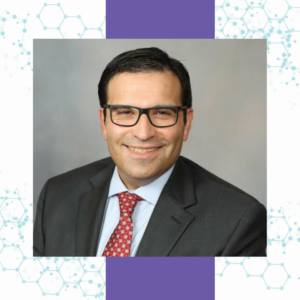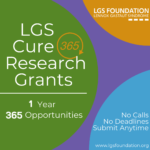2024 Grant Recipients – Anthony Fine & Juliet Knowles
International Consensus for the Diagnosis and Management of Lennox-Gastaut Syndrome

Anthony Fine, MD
Mayo Clinic

Juliet Knowles, MD, PhD
Stanford University School of Medicine
Highlights:
- The care of people with Lennox-Gastaut syndrome (LGS) can be significantly variable in terms of diagnosis and management.
- There is limited consensus for first, second-, or third-line treatments in LGS.
- Initial literature review will focus on the following topics: (1) Recommended diagnostic investigations for newly diagnosed, suspected, and/or presumed LGS, (2) Prophylactic antiseizure medication management and management of status epilepticus, including nonconvulsive status epilepticus, (3) Nonpharmacologic therapies, including dietary therapy, surgical treatments, and neuromodulation, (4) Management of comorbidities including SUDEP, and (5) Evolution of clinical and electroencephalographic findings from early LGS to adulthood and transition of care.
- Expert consensus recommendations will be developed through 3 rounds of surveys/questionnaires to a group of international and geographically diverse adult and pediatric epileptologists and caregivers using the Delphi process.
Results: Grant in Progress
Results will be shared when the grant is completed.
Lay Abstract:
Lennox-Gastaut Syndrome (LGS) is a rare, severe, childhood-onset epilepsy characterized by multiple treatment-resistant seizure types associated with significant comorbidities including developmental delay. The care of people with LGS can be highly variable, beginning with diagnosis of LGS, which can take years resulting in missed opportunities for appropriate medication trials and sometimes inappropriate diagnostic investigations. The subsequent management of LGS is further complicated by the lack of clinical evidence regarding comparative effectiveness of antiseizure medications and other treatment modalities. Beyond the treatment of seizures, people with LGS have difficult to manage comorbidities, including mild to severe developmental delay/intellectual disability, sleep disorders, behavioral and psychiatric disorders, and increased risk of injury and early death from seizures including sudden unexpected/unexplained death in epilepsy (SUDEP). To improve the care of persons with LGS, we propose to establish expert consensus recommendations on the care of persons with LGS focusing on management of epilepsy, comorbidities, and outcomes.
We will use a Delphi process which consists of 3 rounds of voting by a panel, composed of international experts and caregivers in the LGS community. With this important work, we will develop expert consensus guidelines to help standardize and improve the quality of clinical care for people with LGS. Our work will also guide future research; benchmark patient outcomes; and empower families and patient advocates with greater knowledge and clearer expectations around clinical care.
 The LGS Foundation accepts unsolicited proposals year-round to seed new basic, translational, and clinical research projects on LGS. Projects may be funded at the $25,000, $50,000, or $75,000 level.
The LGS Foundation accepts unsolicited proposals year-round to seed new basic, translational, and clinical research projects on LGS. Projects may be funded at the $25,000, $50,000, or $75,000 level.
Updated 01/09/25 (KK)
